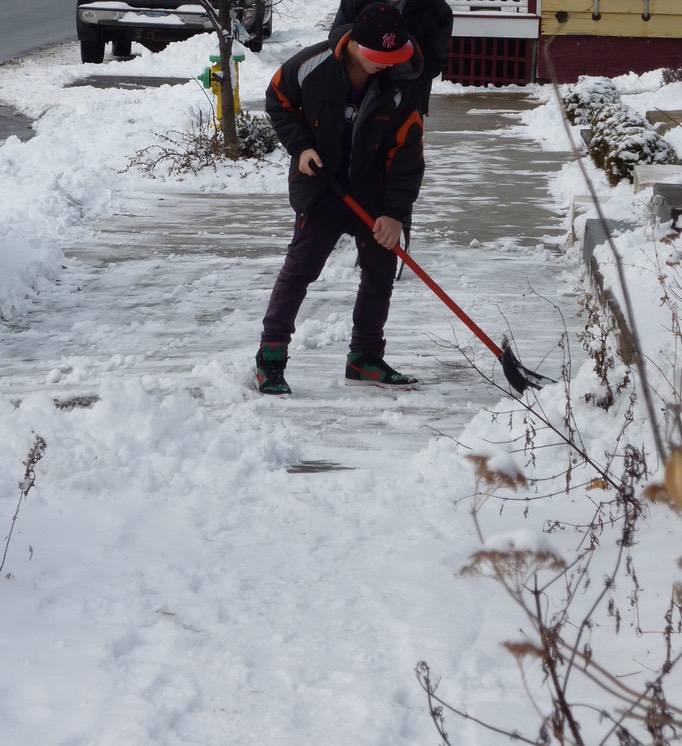
“Chores are just part of growing up and kids shouldn’t be paid for doing them!”
Barbara couldn’t understand why the argument. Ken was adamant. “They get an allowance and they need to learn that money isn’t free. They have to earn it.” Barbara acquiesced reluctantly, but only when Ken agreed to be totally in charge of the payment arrangements.
So far, so good.
Ken approached the children with his plan. He explained that they needed to learn about earning money. The kids quickly let him know that chores were not cool, but being paid was, and they started negotiating prices. The discussion was getting nowhere when Zach stood up and announced, “Meet me at my computer in ten minutes.” (click here for a free copy of a chore chart from parenting teens.about.com)
His list of possible chores was 15 lines long and included jobs he had not yet done. Jobs with hefty prices. Dad, son and daughter hassled over each item. Sister Jane was fairly quiet until Zach recommended that he be paid more for some of the jobs because he was older and needed more money than she did. After a noisy sibling interchange, Ken put his foot down and declared that the pay would be the same for both.
Did the arrangement work?
It seemed to. However, Ken felt his blood pressure rise every time Zach approached him with a printout of “the list” and demanded an increase on common items or added an item he had always done which he thought, in all fairness, he should be paid for now.
Soon Ken and Barbara noticed that there were times that some of Zach’s chores didn’t get done. The week he did nothing, Barbara called a big meeting. Ken dithered, “I don’t understand. I never hassle about paying.” Barbara backed Zach into a corner. “What’s going on? Give me a straight answer.” Zach’s tone was placating. “Thanks for reminding me about the chores. But I don’t need any money this week so I’m not doing them.”
Barbara’s solution was simple.
“No pay for chores. None. Zip. Nada. You do chores because you are a family member. You already get your pay in your room and board. You get an allowance because you are a family member, and I’m going to start teaching you how to handle your money.” Ken thought otherwise. He overruled Barbara because the plan was working well with sister Jane. Ken continued to try to teach Zach about earning money. Zach wound his dad tight around the pole—the pole of Ken’s vulnerability, his failure to recognize that what works with one child may not work with another, and his lack of recognition that he was a party to Zach’s game.
Remember, the major resentment expressed by adults in the overindulgence research studies was “They did things for me that I should have been doing for myself, and I didn’t have to do chores.” Not doing chores left holes in their skill sets, holes that caused inconvenience and pain in their adult lives.
What works for you and your children? Do you focus on earning or contributing?
Some parents say:
· “Chores are children’s work. They get paid.”
· “I don’t get paid for my chores. I do them to make the family work. Children should
do the same.”
· “My children don’t get paid for their regular chores, but they do get paid if they do
something I would have paid to have done.”
· Can’t make up their minds and their kids wind them around the waffling pole.
Remember that any time our children wind us around a pole, we have let them do that, and we can pick up our parent power and put a stop to it by being willing to “be the parents.”
There is more help about avoiding overindulgence in How Much is Too Much? Raising Likeable, Responsible, Respectful Children – From Toddlers To Teens – In An Age of Overindulgence (2014, DaCapo Press Lifelong Books).
All photos from MorgueFile free photo.


